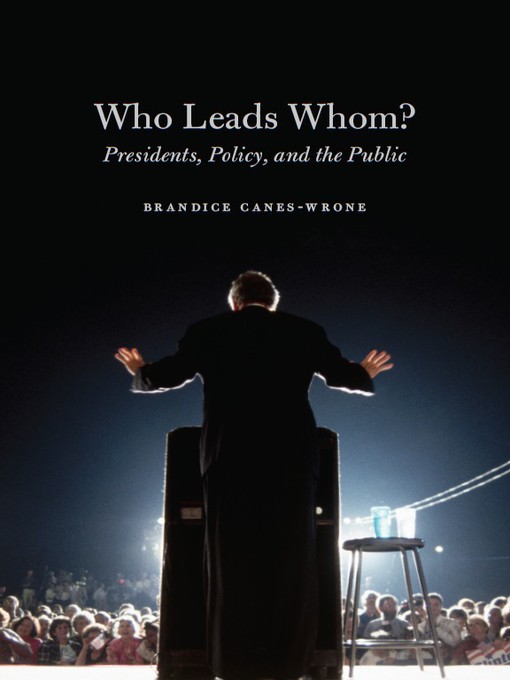Who Leads Whom? is an ambitious study that addresses some of the most important questions in contemporary American politics: Do presidents pander to public opinion by backing popular policy measures that they believe would actually harm the country? Why do presidents "go public" with policy appeals? And do those appeals affect legislative outcomes? Analyzing the actions of modern presidents ranging from Eisenhower to Clinton, Brandice Canes-Wrone demonstrates that presidents' involvement of the mass public, by putting pressure on Congress, shifts policy in the direction of majority opinion. More important, she also shows that presidents rarely cater to the mass citizenry unless they already agree with the public's preferred course of action. With contemporary politics so connected to the pulse of the American people, Who Leads Whom? offers much-needed insight into how public opinion actually works in our democratic process. Integrating perspectives from presidential studies, legislative politics, public opinion, and rational choice theory, this theoretical and empirical inquiry will appeal to a wide range of scholars of American political processes.
- Cowboys and Country Music
- Literary Longlists
- Solar Eclipse
- Spring Cleaning
- The More People I Meet, the More I Love My Dog
- Life on Our Planet
- Celebrate the Freedom to Read!
- Washington State Authors
- Great Book Group Picks
- Always Available Classics
- Available now eBooks
- Just Added eBooks
- All eBooks
- See all
- Award Winning Audiobooks 2024
- Available now Audiobooks
- Just Added Audiobooks
- Poetry is Meant to Be Spoken
- Stuff You Missed in History Class
- Radio Dramas
- Hear the Dark Academia
- Listen While You Run: Audiobooks for Workouts
- Read by a Celeb
- Quick Stories
- Audiobooks for your Commute
- All Audiobooks
- See all
- News & Politics
- Celebrity
- Health & Fitness
- Food & Wine
- Fashion
- Tech & Gaming
- Business & Finance
- Revistas
- Cars & Motorcycles
- Home & Garden
- See all

